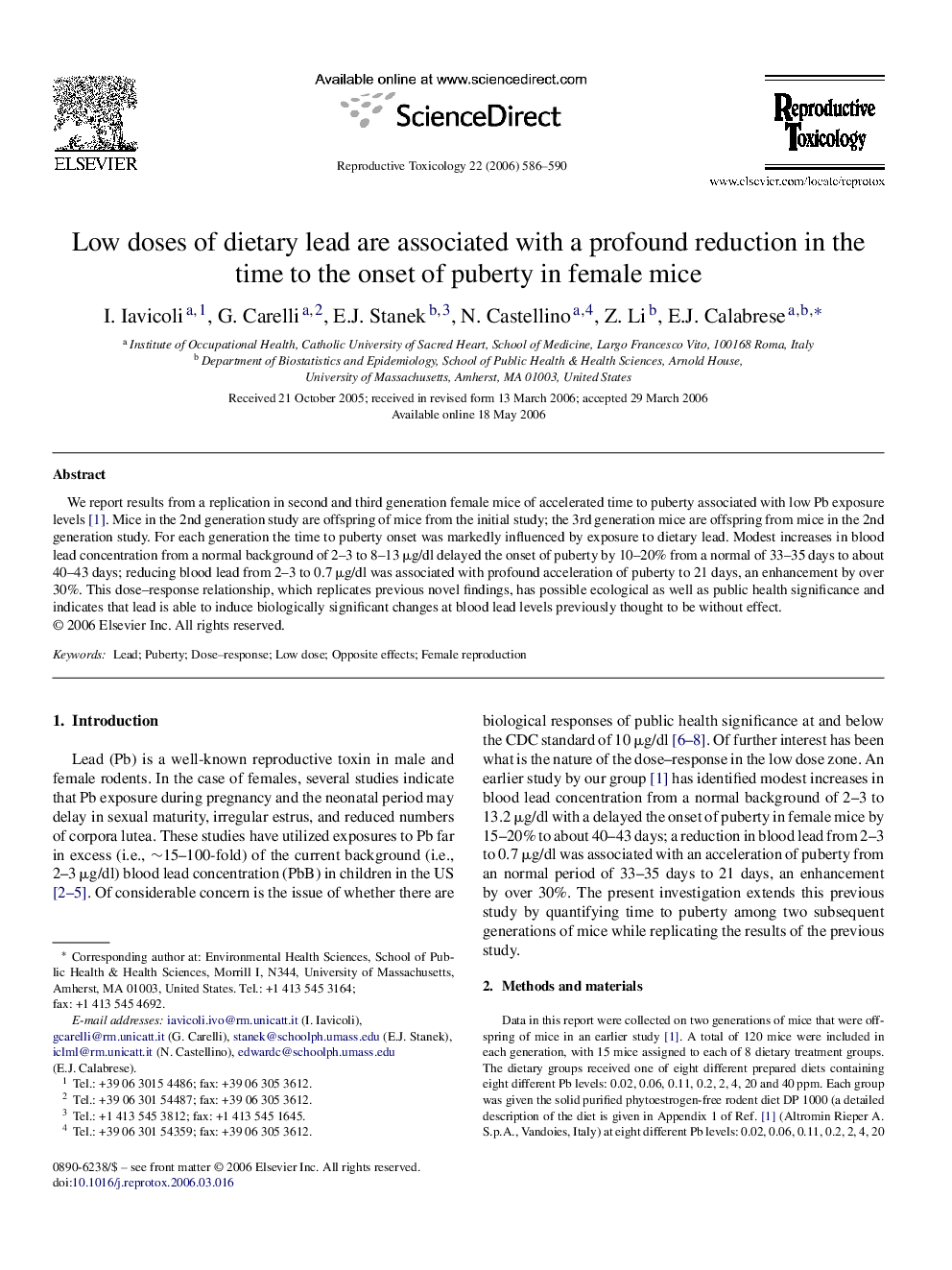| Article ID | Journal | Published Year | Pages | File Type |
|---|---|---|---|---|
| 2594619 | Reproductive Toxicology | 2006 | 5 Pages |
Abstract
We report results from a replication in second and third generation female mice of accelerated time to puberty associated with low Pb exposure levels [1]. Mice in the 2nd generation study are offspring of mice from the initial study; the 3rd generation mice are offspring from mice in the 2nd generation study. For each generation the time to puberty onset was markedly influenced by exposure to dietary lead. Modest increases in blood lead concentration from a normal background of 2-3 to 8-13 μg/dl delayed the onset of puberty by 10-20% from a normal of 33-35 days to about 40-43 days; reducing blood lead from 2-3 to 0.7 μg/dl was associated with profound acceleration of puberty to 21 days, an enhancement by over 30%. This dose-response relationship, which replicates previous novel findings, has possible ecological as well as public health significance and indicates that lead is able to induce biologically significant changes at blood lead levels previously thought to be without effect.
Related Topics
Life Sciences
Environmental Science
Health, Toxicology and Mutagenesis
Authors
I. Iavicoli, G. Carelli, E.J. Stanek, N. Castellino, Z. Li, E.J. Calabrese,
